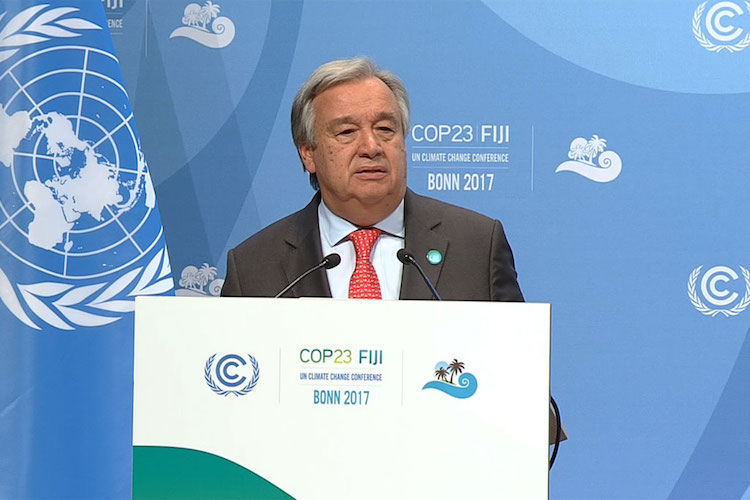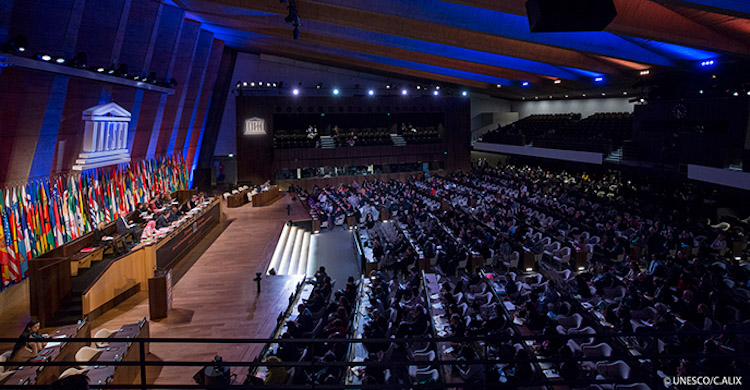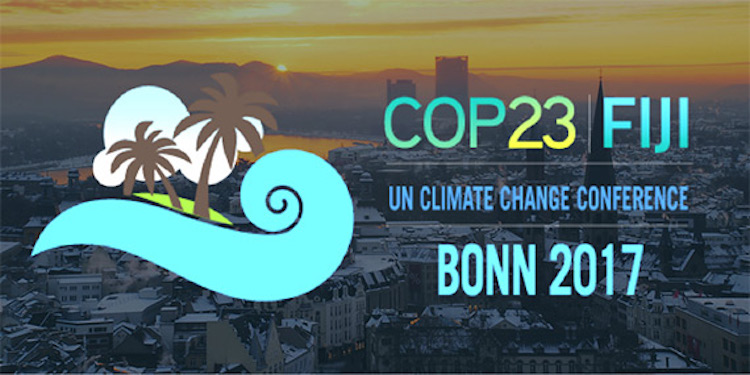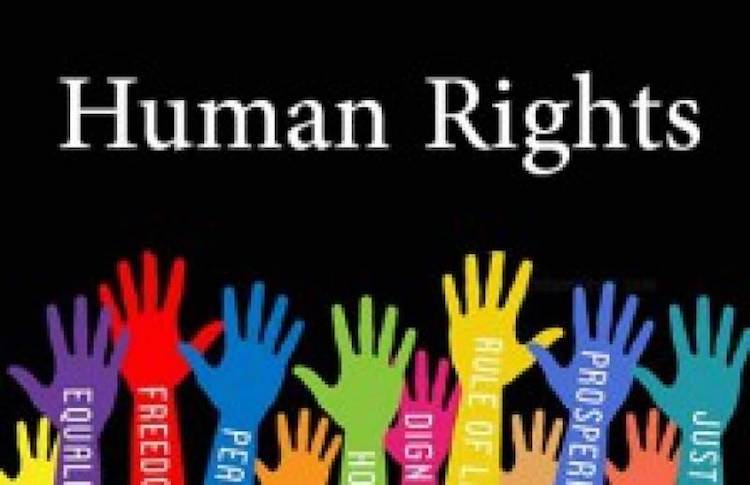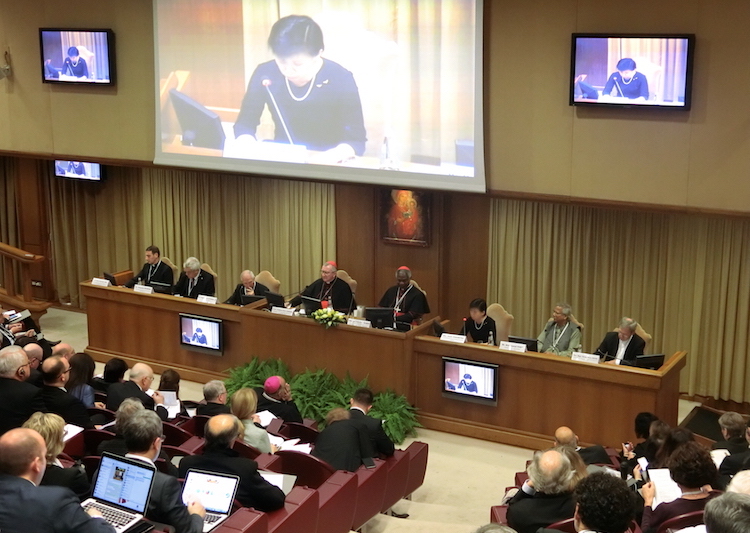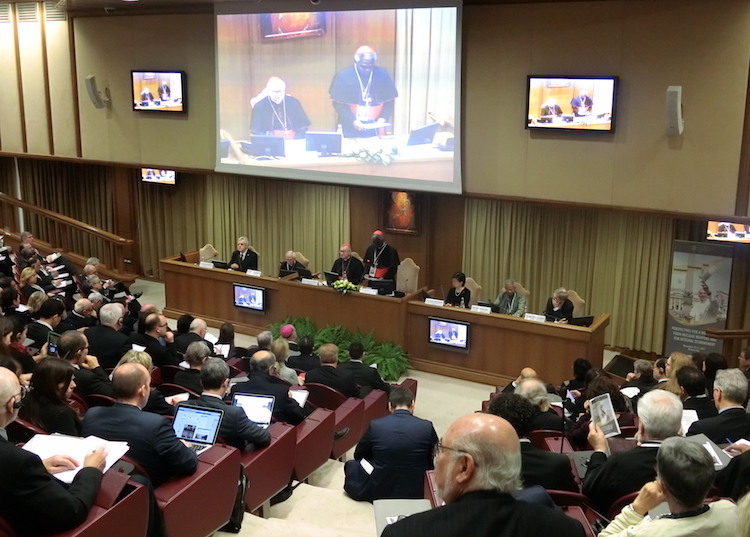By António Guterres, UN Secretary-General Following are extensive excerpts from UN Secretary-General António Guterres’ remarks on November 15, 2017 at the Opening of the High-level Segment of COP23, the 23rd session of the Conference of the Parties (COP23) to the United Nations Framework Convention on Climate Change (UNFCCC). – The Editor BONN (IDN-INPS) – It […]
U.S. and Russia Should Avail of the Avalanche of Truth-Telling
By Alice Slater* NEW YORK (IDN-INPS) – NATO’s recent provocative decision to build up its military forces across Europe by sending four new multinational battalions to Lithuania, Latvia, Estonia and Poland, comes at a time of great turmoil and intense questioning of global security with new forces for both good and evil straining to make […]
New UNESCO Director-General Aims to Bridge Divides
By A.D. McKenzie PARIS (IDN) – “May the force be with you” was one of the comments by an ambassador at the investiture ceremony of UNESCO’s new director-general, Audrey Azoulay of France, on November 13. The “Star Wars” quotation was meant to evoke the many challenges that lie ahead for Azoulay as she takes over […]
107 Countries Call for Tangible Progress in Implementing the Paris Climate Accord
By Jaya Ramachandran BONN (IDN) – The 28-nation European Union and 79 countries of the African, Caribbean and Pacific (ACP) Group have reaffirmed their commitment to the implementation of the Paris Climate Agreement, which entered into force on November 4, 2016. They also urged all member states to ensure concrete progress at the UN Climate […]
More Steps Forward on Human Rights than Backwards
Viewpoint by Jonathan Power* LUND, Sweden (IDN-INPS) – When Donald Trump stretched his hand across our television screens on Sunday (November 12) to shake the hand of the Philippines’ president, Rodrigo Duterte, and then said he had “a great relationship” with him I felt my gorge contracting. Having tasted the great, if sometimes flawed, (remember the […]
Climate Scientists Warn of Unprecedented Risks to Humanity
By Jaya Ramachandran BONN (IDN) – Scientists are warning of a profound impact on human health and migration, leading to civil unrest and conflict. In a new statement to national representatives meeting in Bonn for the annual climate talks widely known as COP23, scientists said that Earth is approaching tipping points that threaten human security. […]
Vatican Conference Underlines Nexus Between Sustainable Development and Nuclear Weapons Ban
By Ramesh Jaura VATICAN CITY (IDN) – When world leaders approved ‘Transforming our world: the 2030 Agenda for Sustainable Development’, as an outcome document of the United Nations summit for the adoption of the post-2015 development two years ago, they designated it as “a plan of action for people, planet and prosperity” that “also seeks […]
Look Beyond Nuclear Deterrence to Deserve the Title of ‘Civilization’
By Alexey Arbatov Dr. Alexei Arbatov is the head of the Center for International Security at the Institute of Primakov National Research Institute of World Economy and International Relations. He is a former scholar in residence with the Carnegie Moscow Center’s Nonproliferation Program. Formerly, he was a member of the State Duma, vice chairman of […]
Disarmament and Non-proliferation Regime a Diplomatic Pillar Reinforcing Peace and Security
By Izumi Nakamitsu The author is High Representative for Disarmament Affairs United Nations (UNODA). Addressing the conference on ‘Perspectives for a world free from nuclear weapons and for integral disarmament’ at Vatican City on 10 November 2017, she expressed her gratitude to Pope Francis and the Holy See for their commitment to a world free […]
The Vatican Galvanizes Support For A Nuke-Free World
By Ramesh Jaura VATICAN CITY (IDN) – The Vatican’s first international conference on the prospects for “a world free from nuclear weapons and for integral disarmament” on November 10-11 was not intentionally planned to overlap with U.S. President Donald Trump’s visit to Asia as the U.S. faces heightened tensions with North Korea. It has been […]

